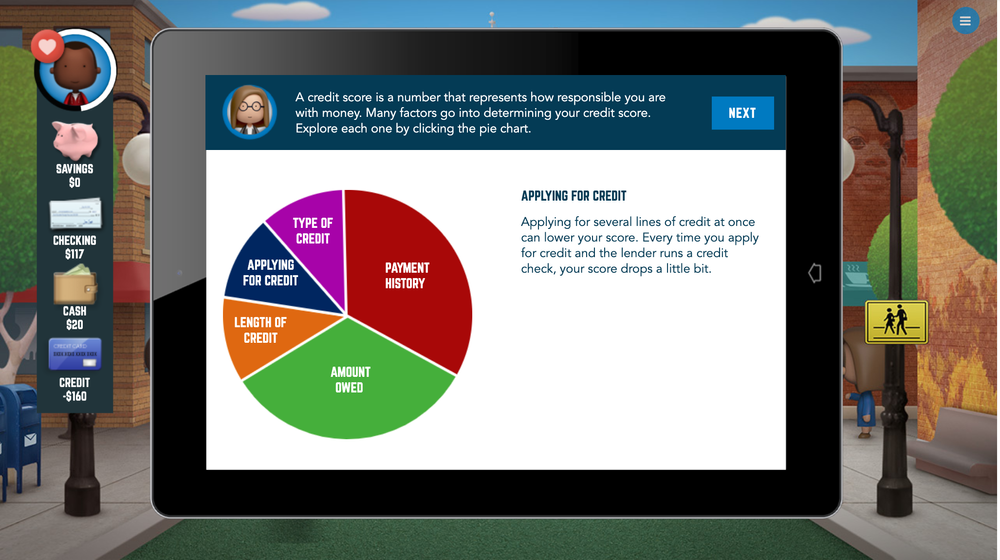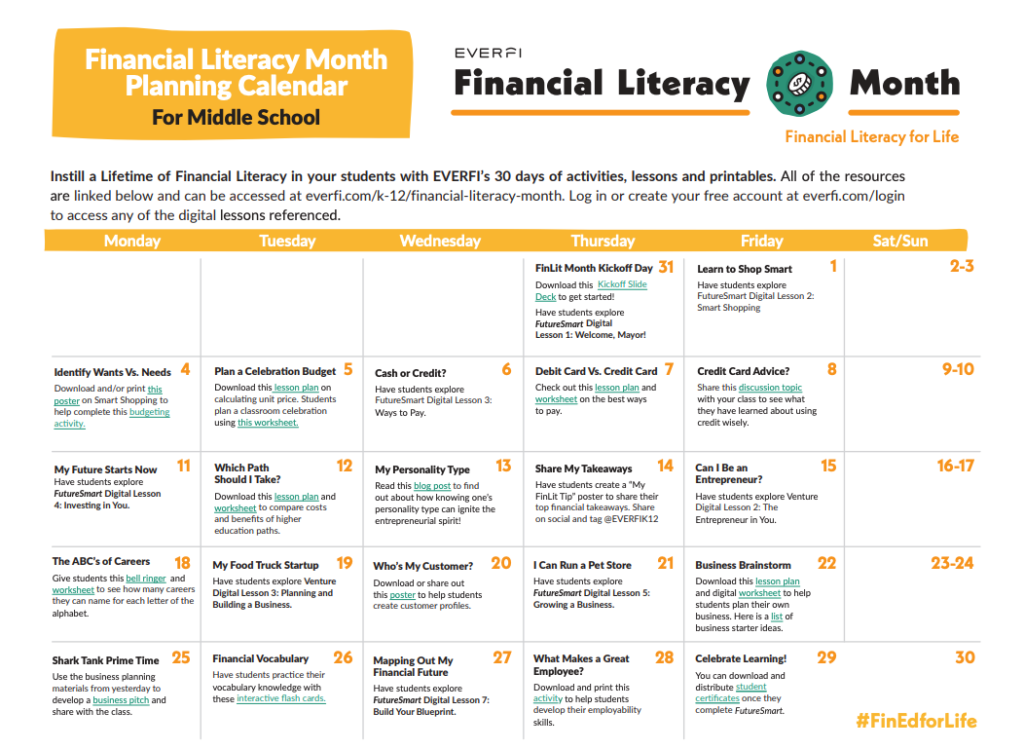- Blog
- Financial Literacy Month is More Important Than Ever Before!
Financial Literacy Month is More Important Than Ever Before!
With the pandemic phase of Covid-19 ending in most areas, “preparedness” has taken on new meaning. Gone are the days of blissful comfortability, when a trip to the grocery store wasn’t akin to planning a search and rescue operation and, more seriously, when we didn’t constantly take for granted the health, safety and financial stability of our loved ones.
Financial Preparedness in a Post-COVID World
March 2020, and the subsequent years we’ve all lived together, was/is a paradigm changer.
For the more than 20 million people that found themselves unemployed in April 2020, sustaining meaningful work might always be a lurking fear.
To the millions of K-12 students who started remotely learning during the pandemic, and to the millions that continue to remote learn, school is no longer just a building in their neighborhood. School is their kitchen, their grandma’s house, the floor of their bedroom or the bathroom at their part-time job.
For Generation-Z, our current Middle and High School students, the last year was a financial wake up call. According to a March 2020 Pew Research Center survey, half of Gen Zers between the ages of 18-23 reported that someone in their household had lost a job or taken a cut in pay because of the pandemic.
IN THE WAKE OF COVID-19, A GENERATION ALREADY HUNGRY FOR FINANCIAL LITERACY EDUCATION NOW MORE DEEPLY UNDERSTANDS THE ADAGE “HOPE FOR THE BEST, BUT PREPARE FOR THE WORST.”
Financial Literacy Education Works
As we kick off Financial Literacy Month, and think about how we best serve our financially hungry students, a question we might be seeking to answer for ourselves and our school community is, “How effective are financial education programs?”
Published in March 2021 in the Journal of Financial Counseling and Planning, the University of Massachusetts Donahue Institute study of FutureSmart, a digital financial education course for grades 6-8, offers some answers.

Through a two-year nationwide study of more than 2,500 students, researchers found “significant, substantial and consistent” financial knowledge gains among students who partook in the FutureSmart course. According to the researchers, “FutureSmart effectively conveys financial knowledge to middle school students, contributing to a foundation for their future financial well-being.”
Key findings from the study included:
-
Knowledge gains in 90% of students who took the one-time FutureSmart course
-
Average knowledge gains of 22% among students
-
Consistent knowledge gain increases across all student demographics including race, age, gender, school year, and socio-economic status
-
Consistent knowledge gain increases across all implementation variables, including the use of supplemental materials, timing, and pacing of the instruction
In this month of celebration and recognition of financial education, the words of Jeremiah Johnson, senior research manager at the University of Massachusetts Donahue Institute, resound loudly — “Based on our study of the FutureSmart program, this research offers strong evidence that financial education is effective – and necessary – for all middle schoolers across the country.”
Celebrating Financial Literacy Month
With this call to action, Everfi, the leader in building foundational financial literacy skills for K-12 students, and the creator of the FutureSmart course, is excited to support Arkansas educators with interactive, online resources, completely free of cost. Through funding from partners like The MassMutual Foundation, Everfi resources, including their digital simulations, discussion guides and virtual engagement opportunities are always free to all schools across the country.
This Financial Literacy Month, Everfi offers multiple opportunities and resources for educators to meaningfully engage their students in financial education!
For Elementary, Middle and High School educators, Everfi has created Financial Literacy Month Calendars that layout daily digital simulations and interactive activities for students.
For Middle School students, Everfi has partnered specifically with The MassMutual Foundation to offer ten $1,000 529 College Savings gift cards to students across the country to complete three lessons in FutureSmart, and then submit a short essay about what they learned, and how FutureSmart has impacted their learning.
And, for all educators that utilize Everfi resources in their classrooms, Everfi offers a $1,000 529 College Savings gift card to select students who complete at least three lessons in any Everfi course, and submits a short essay about what they learned.
To learn more, head to www.everfi.com/k-12 or, to get started, head to www.everfi.com/newteacher!
Thank You For Your Commitment to Financial Education
Without your commitment to financial education, today’s students won’t be prepared for tomorrow’s challenges. Thank you for teaching financial education!

Peter Kelpin is a former 7th Grade Special Education teacher who, currently, helps School Districts across North America discover Everfi. Throughout his time at Everfi, he’s directly supported Districts and Departments of Education across the United States and Canada as they work with Everfi to embed real world skills into their curriculum. Peter previously served as a member of the North Carolina Council on Economic Education Board, where he supported financial literacy efforts in the state..
Want to prepare students for career and life success, but short on time?
Busy teachers use Everfi’s standards-aligned, ready-made digital lessons to teach students to thrive in an ever-changing world.
